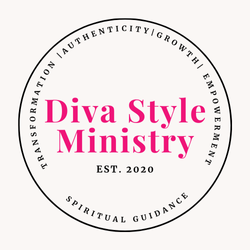In a society that has historically silenced women, our voices have often been marginalized, ignored, or dismissed. These dynamics have created a culture where many women feel more inclined to stay quiet rather than confidently speak their minds. Whether you’re in the workplace, at home, or in a social environment, speaking up is a powerful act of self-advocacy and empowerment.
It’s essential to embrace your voice and express yourself, not just for your own well-being but to create a world where women’s thoughts, ideas, and feelings are honored and respected. When you speak your truth, you not only boost your self-esteem but also encourage others to do the same. Learning to communicate assertively is a journey of personal growth, and with the right mindset, you can become a confident advocate for yourself in any situation.
If you’ve ever struggled with voicing your opinions or felt like your thoughts weren’t worth sharing, it’s time to change that narrative. Let’s explore seven practical and transformative tips to help you confidently express your thoughts and feelings.
1. Know That Your Voice Matters
The first step in learning to speak your mind is recognizing that your voice has value. You don’t have to be able to produce a long list of achievements either – your voice has value because its YOURS.
Your opinions, experiences, and emotions deserve to be heard. For too long, many women have internalized the belief that their contributions are less significant, but that’s far from the truth. Take ownership of your thoughts, and remind yourself that your perspective matters just as much as anyone else’s.
Start by using this affirmation daily: “My voice is powerful, and I deserve to be heard.” This simple yet powerful affirmation can help shift your mindset and create a foundation of confidence.
2. Practice Assertiveness, Not Aggressiveness
Many women fear that speaking their mind will make them seem aggressive, but there’s a clear difference between assertiveness and aggressiveness. Assertiveness is about confidently expressing your thoughts and feelings while respecting others. Aggressiveness, on the other hand, often disregards others’ feelings in the pursuit of being heard.
To practice assertiveness, use “I” statements. For example, instead of saying, “You never listen to me,” try “I feel unheard when I’m interrupted during conversations.” This technique helps you communicate your emotions clearly and respectfully. Using “I” language helps the other person realize you’re not attacking them, only standing up for yourself.
3. Let Go of the Fear of Rejection
Fear of rejection is one of the biggest obstacles women face when learning to speak their minds. It’s natural to worry about how others perceive you, but remember, your worth isn’t dependent on external approval. The reality is, you cannot control how others will react, but you can control how you express yourself.
Start small by sharing your thoughts in low-pressure environments, like casual conversations with friends. Over time, you’ll develop the confidence to express yourself in more challenging situations.
4. Prepare Yourself for Difficult Conversations
Sometimes, the fear of speaking up comes from not knowing how to navigate tough conversations. Preparation is key. Before engaging in a difficult discussion, take some time to reflect on what you want to say, why it’s important, and what outcomes you hope to achieve. This will help you communicate your message with clarity and conviction.
Write down key points you want to address and practice them in front of a mirror or with a trusted friend. The more you rehearse, the more confident you’ll feel when the moment arrives.
5. Set Boundaries with Confidence
Speaking your mind isn’t just about expressing your opinions; it’s also about setting and maintaining boundaries. When you assert your needs and establish clear boundaries, you show others how you expect to be treated. Boundaries are essential for preserving your emotional well-being and building healthier relationships.
Don’t be afraid to say no when necessary or to ask for what you need. You’re not being unreasonable or difficult by advocating for yourself. In fact, setting boundaries is a form of self-care.
6. Silence Your Inner Critic
Many women struggle with self-doubt, often second-guessing whether their thoughts are valid or even worthy of being shared. This inner critic can be a powerful force that keeps you silent. But remember, that voice is not the truth—it’s just a reflection of past conditioning.
Challenge your inner critic by focusing on your strengths and accomplishments. Acknowledge your expertise, your life experiences, and the value you bring to conversations. Replace negative self-talk with empowering affirmations like, “I am worthy of being heard” or “My opinions are valid.” Use your personal journal to help you track how and when you express your strength and accomplishments, and also track when others reinforce what you’re capable of.
7. Start Speaking Up in Small Ways
You don’t have to dive into speaking your mind all at once. Start with small steps – Baby Steps forward are STILL steps forward.
Maybe it’s sharing an opinion in a meeting, voicing a preference in a group setting, or initiating a conversation about something that matters to you. Every time you speak up, you’re strengthening your confidence.
Celebrate your progress along the way, even if the steps feel small. Over time, these small actions will add up, and you’ll find that expressing yourself becomes more natural and empowering.
Embrace the Power of Your Voice
Learning to speak your mind is not about changing who you are—it’s about reclaiming your voice and stepping into your power. Your thoughts, opinions, and emotions are valuable, and the world needs to hear them. Every time you express yourself, you’re contributing to, and helping to establish a culture where women are empowered, respected, and heard.
Remember, confidence in communication is a skill that can be developed. The more you practice, the easier it will become to stand in your truth and speak your mind with authenticity and grace. Embrace your voice and share it proudly, knowing that you are inherently worthy of being heard.





